Richard Thomas Griffiths (7 April 1948) is an English-Dutch historian [1] [2] who was professor of economic and social history at Leiden University.
Richard Thomas Griffiths (7 April 1948) is an English-Dutch historian [1] [2] who was professor of economic and social history at Leiden University.
Griffiths was born on 7 April 1948 in Isleworth, United Kingdom. [3] He studied economic history and Russian studies at University College, Swansea and graduated with first class honours in 1970. He was a postgraduate student at Jesus College, Cambridge.[ citation needed ] In 1977 he received his PhD from the University of Cambridge with a thesis titled: "Industrial retardation in the Netherlands 1830-1850". [3]
He was appointed lecturer in European Studies at the University of Manchester Institute for Science and Technology (now part of Manchester University) in 1973. From 1980 to 1987 he was professor of Social and Economic History at the Free University, Amsterdam. From 1987 to 1995 he held the chair in Contemporary History at the European University Institute (EUI) in Florence where he directed its research project into the History of European Integration. In 1995 he became Professor of Economic and Social History at Leiden University [3] where he also set up the MA in European Union Studies. [4] He is currently director of the BA in International Studies, taught at the university’s campus in the Hague. He has been visiting professor at Leuven University (Belgium), Evora University (Portugal), Istanbul Bilgi University (Istanbul, Turkey) and Chulalongkorn University (Bangkok, Thailand).

Leiden University is a public research university in Leiden, Netherlands. It was founded as a Protestant university in 1575 by William, Prince of Orange, making it the oldest institution of higher education in the Netherlands.
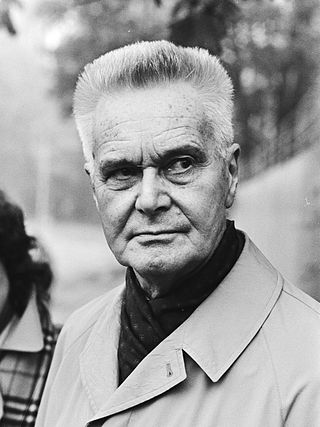
Jan Tinbergen was a Dutch economist who was awarded the first Nobel Memorial Prize in Economic Sciences in 1969, which he shared with Ragnar Frisch for having developed and applied dynamic models for the analysis of economic processes. He is widely considered to be one of the most influential economists of the 20th century and one of the founding fathers of econometrics.

The Vrije Universiteit Amsterdam is a public research university in Amsterdam, Netherlands, being founded in 1880. The VU Amsterdam is one of two large, publicly funded research universities in the city, the other being the University of Amsterdam (UvA). The literal translation of the Dutch name Vrije Universiteit is "Free University". "Free" refers to independence of the university from both the State and the Dutch Reformed Church. Both within and outside the university, the institution is commonly referred to as "the VU". Although founded as a private institution, the VU has received government funding on a parity basis with public universities since 1970. The university is located on a compact urban campus in the southern Buitenveldert neighbourhood of Amsterdam and adjacent to the modern Zuidas business district.

Istanbul University, also known as University of Istanbul, is a public research university located in Istanbul, Turkey.
Peter Mair was an Irish political scientist. He was a professor of comparative politics at the European University Institute in Florence.
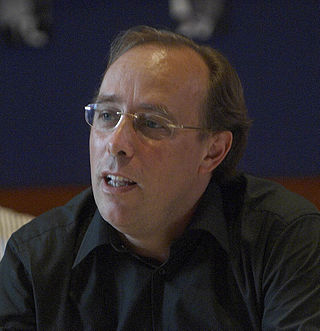
Wouter Jacobus Hanegraaff is professor of the History of Hermetic Philosophy and related currents at the University of Amsterdam, Netherlands. He served as the first president of the European Society for the Study of Western Esotericism (ESSWE) from 2005 to 2013.

Ronald Hans Anton Plasterk is a Dutch scientist, entrepreneur and retired politician of the Labour Party (PvdA). He has earned a PhD degree in biology, specialised in molecular genetics. Being a former Minister in the Cabinet of the Netherlands, he has been the founder and CEO of Frame Cancer Therapeutics since December 2018. Next to his work at Frame, he has been appointed as professor at the University of Amsterdam since September 2018.

Henk Wesseling was a Dutch historian. He was a professor of contemporary history at Leiden University, former rector of the Netherlands Institute for Advanced Study between 1995 and 2002.

Şevket Pamuk is Professor of Economics and Economic History at Boğaziçi (Bosphorus) University. Between 2007 and 2013, Pamuk was chair of Contemporary Turkish Studies at the European Institute, London School of Economics and Political Science.
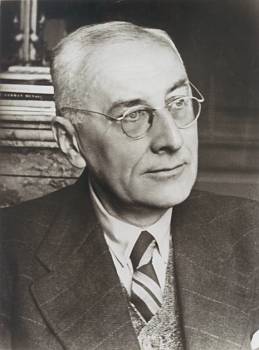
Nicolaas Wilhelmus Posthumus or N.W. Posthumus was a Dutch economic historian, political scientist, and professor at Erasmus University Rotterdam.
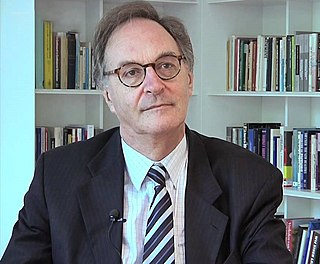
Alexander Hendrik George Rinnooy Kan is a Dutch politician, businessman and mathematician who served as Chairman of the Social and Economic Council from 2006 to 2012. A member of the Democrats 66 (D66) party, he was a member of the Senate from 2015 to 2019 and is a distinguished professor of Economics and Business Studies at the University of Amsterdam since 1 September 2012. He has also been president of the supervisory board of EYE Film Institute Netherlands since 2008 and of Museum Boerhaave since 2018.

Alastair Andrew Hamish Hamilton FBA is an English historian.
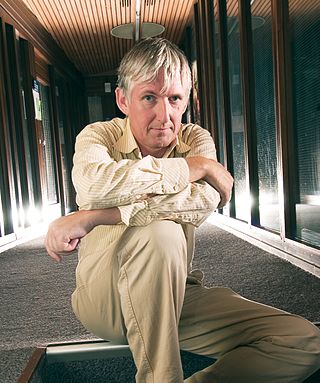
Jan Luiten van Zanden is a Dutch economic historian and professor of Global Economic History at Utrecht University. He is a widely acknowledged specialist in Dutch, European and Global Economic History.
Mark Overton, FAcSS, is a British agricultural historian and formerly Professor of Economic and Social History at the University of Exeter, where he was Deputy Vice-Chancellor from 2006 to 2013.
Hendrik Frans Karel van Nierop is a historian of early-modern Holland and professor emeritus of the University of Amsterdam.
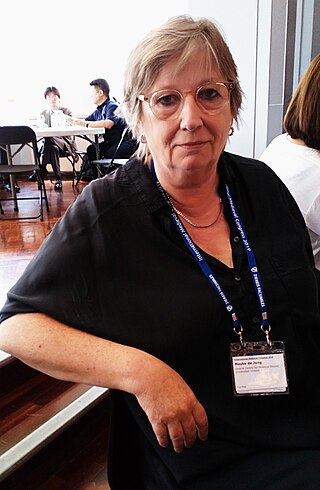
Mayke de Jong is a Dutch historian and Professor Emerita of Medieval History at Utrecht University. Her research focuses on the political and religious history of the early Middle Ages.
Dirk Herbert Arnold Kolff is a Dutch historian and Indologist. Born at Rotterdam in the Netherlands, Kolff earned a doctorate degree from the Leiden University in 1983 with a doctoral thesis on the research subject of armed peasantry in northern India. He is a professor emeritus of modern South Asian history and the former Chair of Indian History at the Leiden University.
Joyce Outshoorn is a professor emeritus of Leiden University. She served as head of the Women's Studies Department from 1987 to 1999. Simultaneously between 1992 and 2000, she was chair of the Netherlands Research School of Women's Studies. From 2007 to 2011, she served on the Steering Committee of the Feminism and Citizenship project (FEMCIT) funded the European Union. She was honored with the Career Achievement Award for 2009 by the European Consortium for Political Research.